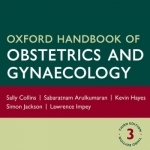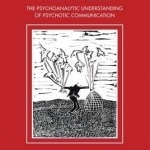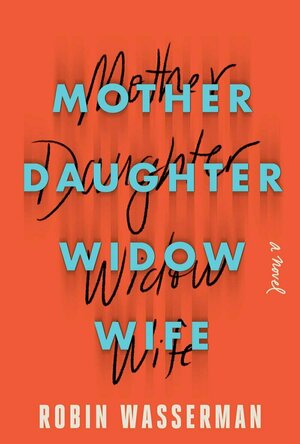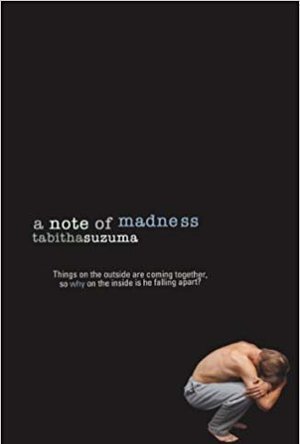
AirStrip - Cardiology
Medical
App
*** NOTE: Requires iOS 7.0 or higher *** IMPORTANT: AirStrip Cardiology is intended for use by...

Hematology Outlines Atlas
Medical and Education
App
*** 2nd Edition of the Top rated Hematology Atlas and Glossary *** Hooman H. Rashidi MD and John C....

Case Files Psychiatry, 5th Ed., (60 Clinical Cases - Lange Case Files by McGraw Hill Medical)
Medical and Education
App
Sixty high-yield psychiatry cases helps students sharpen their diagnostic and problem-solving skills...

Oxford Handbook of Obstetrics and Gynaecology
Medical and Book
App
By downloading this “frame” app you will be given the opportunity to PURCHASE the latest version...

Crazy Makeover
Games and Entertainment
App
Become a beautician today! Pick and choose different beauty treatments for your clients, no matter...
Kristy H (1252 KP) rated Mother Daughter Widow Wife in Books
Jul 2, 2020
"Every daughter became a mother, every mistress a wife--every wife a widow."
This is a hard book for me to rate, even several weeks after finishing it. Is it a brilliant work examining womanhood and love or a frustrating tale that leaves you feeling unresolved? This is certainly a complex book that features complex science, emotions, and feelings. Wasserman has done her research, and there are pages and pages devoted to the science of dissociative fugue, amnesia, and more. I won't lie: it's a lot. There were times I found myself just skimming those sections, because it was a bit much for me.
I didn't care much for the character of Alice, and I'm not entirely sure why, because her mother is missing (presumed dead by suicide by everyone except Alice), and she's worried. But there's something about Alice that just didn't make her particularly sympathetic to me. As for Lizzie, even though she didn't make the best of choices, I liked her more. Maybe I identified better with her. We get to see Lizzie in the past and present, and Wasserman does a good job of capturing the yearning of loving someone who doesn't deserve you and the idea of becoming someone else for love. Even Wendy is hard to care about sometimes, because she just doesn't seem care herself. To her, her memory is a thing she's lost, but because she can't remember, she doesn't seem too concerned.
"'You don't get it: I don't not want it back, and I don't want it back. There is no it. You can't miss what never happened.'"
What was so hard with this book is that there were just so many words. Oh the words. Words about science, words about feelings, words, words, words. It just felt long. I wasn't entirely invested in the story, but I did want to find Alice's mother, but then everything just felt sort of eh and unresolved, and yeah. I don't know. So much thinking, not much happening. I think this novel probably presents some brilliant ideas and representations, but they went over my head. 2.75 stars, rounded to 3 here.

Obstructive Sleep Apnea Screener
Medical and Health & Fitness
App
(V2.0.1 IS A RE-WRITE FOR iOS6+) Obstructive Sleep Apnea Screener provides access to screening...

The Making Room for Madness in Mental Health: The Psychoanalytic Understanding of Psychotic Communication
Book
In this book, Marcus Evans argues that in addition to providing a helpful treatment for patients who...
Eleanor Luhar (47 KP) rated A Note of Madness (Flynn Laukonen, #1) in Books
Jun 24, 2019
I didn't realise this was the first of two books, but it reads fine as a standalone novel anyway. I hadn't intended to read on, but I just love Suzuma's writing too much. I've reserved the next novel at the library.
I found this quite similar to Hurt in a couple of ways; firstly, the protagonist is a young male who is experiencing something very unpleasant but important to talk about. Instead of rape, as in Hurt, this time the topic is mental health. Flynn's got the whole world at his feet, but suddenly he's up all night composing or drowning himself in alcohol and aspirin. Everything feels wrong and he doesn't know why. His flatmate, Harry, calls Flynn's brother in to help. He's a doctor and soon realises Flynn needs proper help. After one incorrect diagnosis and several relapses, Flynn finally feels the world go back to normal.
Although the ending is typically "hopeful" (which you can only expect, really - it's not gonna be very helpful for kids to read stories where you never recover from your mental illness) it still manages to be realistic rather than overly positive and optimistic. For example, Flynn is offered a couple of amazing experiences in this book, the first of which he is determined to take. But he doesn't, because his health declines so much. I can tell you how horrible it is when you have your heart set on something but your mental health holds you back... Sometimes you just can't do it. Flynn's health gets so bad that his brother takes him away on the eve of his big concert (he's a music uni student).
There's also a romance line through this, which I gather will be furthered in the next book. Flynn doesn't pay much attention to it - doesn't even notice it - due to his condition, until it's too late and he's messed it up. Jennah is an old crush of his, recently parted from her boyfriend for a mysterious "other guy". Flynn just doesn't put 2 and 2 together, though, and assumes she could never love him because he's so hopeless and talentless and depressed. Things really get bad when they argue about it during one of Flynn's relapses, and she goes missing for the night. I must admit that I immediately feared the worst after what happened in Hurt, but it was eventually resolved. I am very interested in reading how Flynn's mental illness impacts his relationship in the future.
This is a great topic to address, especially in males. The episodes may be a little exaggerated but then I suppose that is how some people experience it. It's different for everyone. I really appreciate the age chosen, too, because people often forget that mental illnesses don't only develop when you're twelve or thirteen. 5 stars; a fantastic book and a fantastic author.
Movie Metropolis (309 KP) rated Deadpool (2016) in Movies
Jun 10, 2019 (Updated Jun 10, 2019)
Here, after much petitioning from fans and Reynolds himself, Deadpool finally gets his own origins story, directed by Tim Miller in his debut feature film. But was it worth the wait?
Ryan Reynolds returns as a much more faithful representation of Wade Wilson, a small-time mercenary going through the motions until a shock cancer diagnosis makes him rethink his life – and career prospects, at the cost of losing touch with his love interest, Vanessa, played by the incredibly beautiful Morena Baccarin.
Naturally, a villain in the shape of Ed Skrein’s Ajax, provides the film with its main opposition, though a few other one-dimensional characters appear alongside him every so often. Unfortunately, they make little impact throughout the course of Deadpool and even Skrein suffers next to Reynolds potty-mouthed Wilson.
MV5BMjE3MzI3NzAwOV5BMl5BanBnXkFtZTgwNDc2Nzc5NzE@._V1__SX1303_SY615_
Brianna Hildebrand, Ryan Reynolds and Stefan Kapicic. Photo by 20th Century Fox.
And ta da! The red-suited antihero is born, much like any other Marvel origins story in fact. However, this is most definitely not your typical superhero flick. From gratuitous sex, violence, swearing and drug references, not to mention the character’s trademark breaking of the fourth wall, it’s all here – and you know what, it’s a breath of fresh air.
Reynolds is absolutely born to play this character and is the best we have seen him in years. Gone is the romantic comedy slop or stereotypical action hero he has portrayed over the last few years and in their place is a witty, incredibly self-aware persona that is one of Marvel’s greatest assets.
Elsewhere, the direction is so confident, and the design choices so slick, it’s difficult to fully comprehend that this is Tim Miller’s first feature film. From a brilliant set of opening credits that poke fun at the narcissism of Hollywood, to some excellent commentary on the superhero genre itself, it’s very cocky indeed and very very funny.
Naturally, not every gag lands on target, but that’s no surprise given that even the best comedies suffer from this. There’s also a lack of development beyond the titular character that hurts the film’s more romantic side, and with Deadpool’s lengthy running time, this could’ve been avoided somewhat.
Other than that, it’s pretty much spot on. Ryan Reynolds looks like he’s having a blast in front of the camera, and Tim Miller looks like he’s having a great time behind it. What about the old Fox and Marvel rivalry chestnut? Well, there’s not even a whiff of it – apart from a sarcastic remark that is.
Overall, Deadpool was a gamble and with Fox’s less than stellar reputation for fashioning decent films out of Marvel property, a huge one at that. But, against all the odds it has paid off spectacularly.
Keep this to yourselves, but it could quite possibly be the best comic-book adaptation to date.
https://moviemetropolis.net/2016/02/13/a-valentines-weekend-wonder-deadpool-review/


